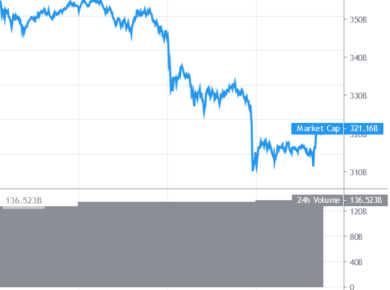Crypto industry might greatly benefit from Facebook’s Libra coins adoption, according to Binance Research, the research arm of the major crypto exchange Binance that has its own interests in the stablecoins business.
In their analysis titled “Will Libra Live Up To Its Initial Ambitions?”, Binance Research shares a positive vision of Libra’s long-term future, albeit one with numerous ‘ifs.’ The analysis claims that if “≋LBR were to become widely used with products directly quoted in ≋LBR, we could imagine new stablecoins, both fiat-backed (e.g., collateralized stablecoin) and crypto-backed (e.g., Maker), replicating its peg on multiple permissionless networks like Ethereum.”
Furthermore, Binance Research sees the possibility of multiple crypto exchanges adding support for Libra Coins (LibraUSD, LibraEUR), but only after the networks’ maturation and wider adoption. If these were to happen, Libra could become an alternative to existing stablecoins, which would result in an increased competition among existing market participants. Nonetheless, this would prove “massive[ly]” beneficial for the rest of the crypto industry, as the adoption would increase. If it happens that Libra opens access to third parties and keeps a user-friendly interface, “benefits to financial inclusion could be significant, and ultimately reshape the global payment industry,” argue the researchers.
That said, these Libra Coins would compete with existing crypto projects on non-trading use cases such as remittances, programmable currency, and other applications. However, its adoption would be prevented in the emerging sectors, e.g. decentralized finance (DeFi), by the lack of inclusion and the permissioned component of the Libra network. “Subsequently, Libra Coins and stablecoins are unlikely to be direct competitors,” write Binance’s researchers, because Libra didn’t “compromise on its long-term goal of financial inclusion,“ instead making “short-term trade-offs that will starkly decrease its initial impact, as open access to Libra (via “Unhosted Wallets”) has been postponed due to regulatory concerns.”
Additional regulations for all levels of Libra and all it comes into contact with will most likely be imposed, both internally and externally, and the payment system will probably have to comply with stricter criteria created by the Bank for International Settlements (BIS). However, notes the analysis, “there are very few payment systems, and most of them are operated by a central bank and of only regional scope.” Therefore, “Libra’s envisioned global payment system could do to the payment industry what SpaceX did to the space industry: shake the foundations of a well-established sector with high entry barriers.” Just the advantage of issuing widely-available programmable money, it says, would alone “initiate manifold efficiency gains.”
As reported, after months of regulatory hurdles, Libra changed its initial plan to issue the multi-currency Libra Coin, now aiming to start from single-currency stablecoins, such as LibraUSD, LibraEUR, etc. Also, they decided against the move to a permissionless system. Furthermore, Facebook suggested this as an alternative to the initial plan back in October, putting Libra on a collision course with the similar Venus Project by Binance, which has its own BUSD stablecoin.











